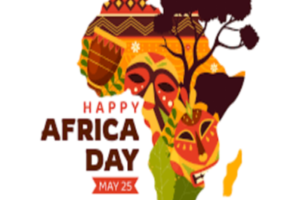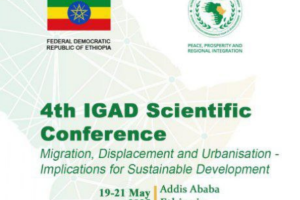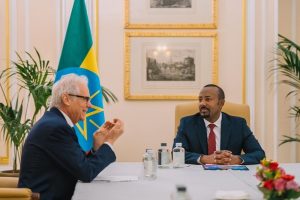BY FITSUM GETACHEW
Ethiopia has held several elections before the current one. Hence we can say Ethiopians are familiar with what elections look like. They know what sort of preparations go in to them and what implications follow. In fact Ethiopians have come to familiarize themselves with the idea of elections even during the monarchical times when the then emperor allowed certain selected individuals, well respected in society, for various reasons, contended for a seat in what was then called the Lower House or the House of Representatives.
Then came the military junta which replaced the monarchy and even during those authoritarian days there were some elections carried out mainly to fill in what was a sort of equivalent of a parliament called ‘Shengo’ or National Assembly. There, major national issues were discussed and the president was the one who conducted or chaired the sessions and inevitably had the final say.
Once there is this idea that elections were supposed to be a form of expression of democracy and legitimacy to run the affairs of a certain country, it had acquired a lot of popularity even in so called totalitarian countries with well-established one party structure. African countries which had inherited the Socialist camp’s ideology and system of government were faithful to the idea of single party reigning but curiously enough there were elections all the same. There were no competitors in variety but candidates of the same party competed amongst themselves. On the other hand, those who inherited ‘the multiparty system’ of the West introduced an electoral system that provided for more than one party to run for elections even if in the majority of the cases the parties that were involved in the liberation struggle of these former colonized states, ‘the liberators’ were the ones who almost single handedly run the elections, and declared themselves ‘winners’.
Opposition parties and politicians were often regarded with suspicion, if not outright enmity, and sidelined, or when their popularity seemed to threaten the incumbent, they were not allowed to run for office, alleging various pretexts.
In Ethiopia, after the fall of the Derg, we had a new government that came to power using not any democratic format but rebellion and victory in the battles that were initiated with guerrilla movements. They formed a new system calling it democratic and since their advent five elections were held all of whom had their fundamental weaknesses and shortcoming that citizens have come to understand and realize. There was no doubt the elections were not inclusive of all political forces and that was done in a systematic manner. The playing field to run for election and contend seats was never level with opposition parties or individuals that wanted to run for a seat in Parliament or one of the regional councils. However, in certain areas there were some strides into building a democratic culture at least in theoretical terms.
There were extensive forms of debates and arguments consisting of presenting alternative ideas and thoughts; but there were multifarious and severe limitations both among the so called opposition forces as well as the ones who run the show. Realizing that the system was not dependable so many people who would otherwise have taken part in the political discourse preferred not to be involved in the processes. And so for five consecutive election periods there were these experiences.
Only once in 2005 was there a true competition between the incumbent and some strong opposition elements that were allowed to flourish. It was a period when even those who were employed by the government and even law enforcement people did vote for the opposition because then, after fourteen years of EPRDF rule, there was fatigue resisting the corruption that was widely spread in the entire government apparatus, with huge and disturbing differences between the upper class of citizens, all aligned to the government circles, and the lower ones who even struggled to make ends meet.
The main weakness of the previous five elections before the current one was the fact that the electoral board conspicuously, consistently and shamelessly sided with the incumbent.
All its plans were disrupted in an unexpected manner and the only choice it had to remain in power unchallenged was to ‘hijack’ the results the way it suited its plans. Even before the election board had any chance of counting the votes and tabulating them, it had declared itself winner in the regions in an attempt to compensate for the obvious loss it suffered in Addis. And it immediately declared every form of public rally illegal, banning them all! When people defied its decrees and tried to celebrate their victory in Addis, a state of emergency was put in effect under the direct command of the premier and the harsh law enforcement campaign began. Tens of thousands, particularly youths, were detained en masse under various pretexts and transported to remote camps where they suffered all sorts of abuses and beatings.
That was the tragic end of the first real flirt of Ethiopians with truly democratic elections with international observers who attended these events declaring the way the polls were concluded below acceptable standard. This infuriated the incumbent and while it discredited the observers’ legitimacy accusing them of being ‘partisan’ to the opposition, it resorted to even more authoritarianism. No wonder then that suppression of fundamental rights became the order of the day.
Civil liberties were reduced to the minimum; associations, rallies, freedom of expression etc. were all curtailed. And it was the end of some sort of ‘democratic experience’ that had appeared promising a few months earlier. The disappointment for citizens was too bitter to swallow. The country moved very much backwards and all the freedom people enjoyed in the pre-election period was disallowed.
After the government declared itself winners when it found out tangibly that it had lost each and every seat in the capital, it had to use the narrative that cities were ‘infested’ with opposition elements and that the regions were the real fortresses of the EPRDF. The government did not need to wait for the declaration of the results by the national electoral board and in this sense it was clear that the election’s result was a ‘mockery of the reality’. It was fabricated in a clumsy and hurried manner because the result was too bitter for the incumbent to swallow. They never imagined that they were so unpopular and people had been fed up with them.
The only way the government could continue was to declare its party victorious and hence would form a new government based on the results. All opposition leaders who obviously could not and did not accept the verdict and take the seats they were given by the government in parliament were declared illegal and arrested.
Undeniably, Ethiopians know they deserve real democratic elections and want to choose the government that can represent their wishes. They know that given their long and glorious history they must have been among the avant-garde of democratic culture but unfortunately this has not materialized.
The sixth general election is by all means the best the country could have afforded especially after really trying times due to various factors. Among the most acute challenges were the issues of security and law and order in the country as a whole and the north in particular. The issue of the pandemic that had almost paralyzed the entire world, the issue of national security after repeated threats from foreign enemies and rivals and the issue of economic problems the country was made to face due to foreign intervention and threats were also obstacles to execute credible elections. There were forecasts that the entire experiment was a sham and destined to fail. But what we have seen is the best under the circumstances with millions patiently lining up for hours in a perfectly peaceful atmosphere and wherever there were unwanted irregularities observers were allowed to note them and the electoral board had to take corrective measures that satisfied the contenders. One can say ever since the reformist government was introduced to power three years ago, this was the first challenge it had to face with the public asked to express their wishes and now that the election is over and results have come out, the incumbent can feel relieved that the public has given it the benefit of doubt at least to continue ruling the country for another five years even despite the rest of the constituencies not having run their elections yet due to various limitations.
If what the Premier said in the event of the declaration of the results are to be materialized the country can expect better days in the coming future as many of the projects are bound to complete and above all the GERD is nearing completion overcoming all sorts of diplomatic and military antagonisms on various fronts. The people can now look more positively in the future and probably rally behind the government they have elected expecting to be gratified by the results to come.
Despite all these pressures the election was carried out peacefully and regularly with utmost credibility and participation of various political parties that have given priority to the nation as a whole rather than individual greatness or ego.
By various standards and parameters the sixth general election has been labeled the best and most democratic ever. Even if most of the parties are as young as three years old and do not have previous electoral experience, the performance of these parties in the elections have been very laudable and appreciated by various foreign and national observations missions and individuals.
Among the strong points in support of this sixth general election was the fact that the chief election regulating body, the National Electoral Board of Ethiopia, was run by a body of independent professionals who have demonstrated their integrity.
THE ETHIOPIAN HERALD JULY 25/2021




